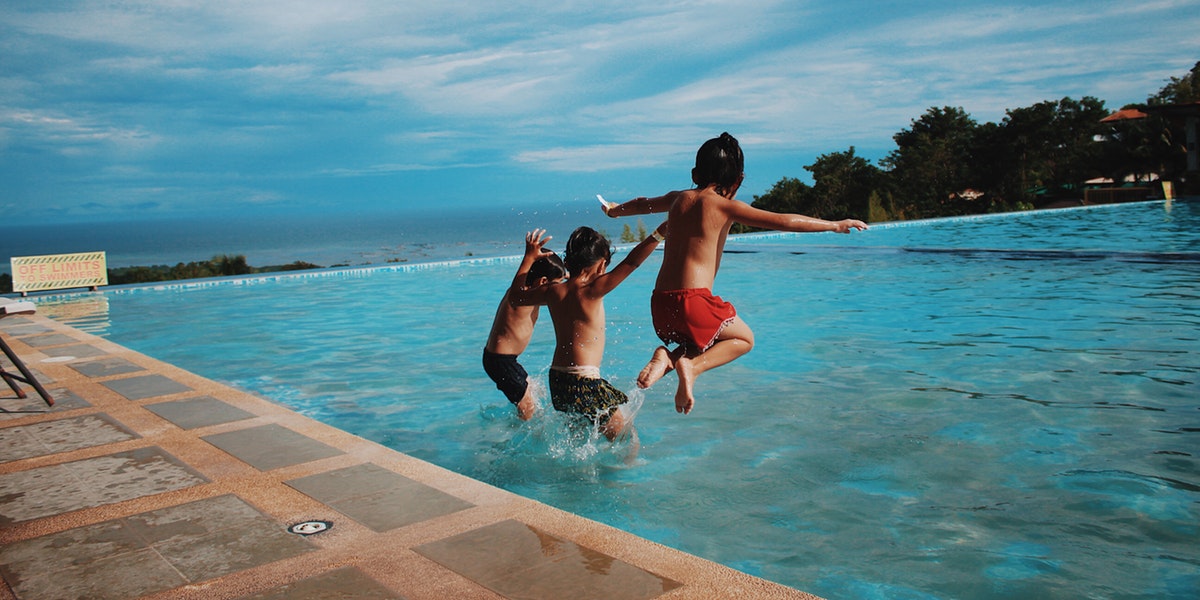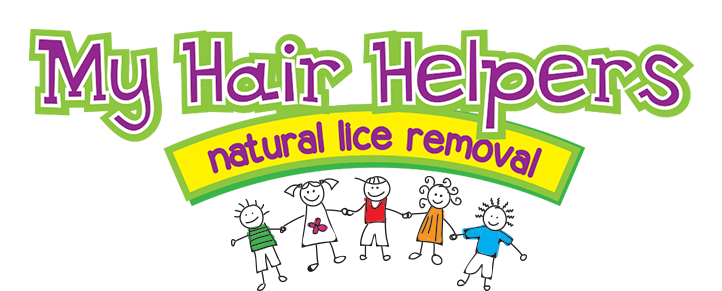Now that it’s summer, we have many families asking if they can catch head lice from swimming in a public pool. Swimming pools are known for lots of things, but head lice aren’t one of them. While there is some risk to catching lice from a swimming pool, that risk is very, very low.
Whether you are planning a family vacation or taking your kids to the community pool, here are some things to know about head lice and swimming.
How long can lice survive in a swimming pool?
A louse can close its breathing spiracles for a maximum of four hours! That’s impressive! This means that if a louse is dislodged from a child’s head, it can technically float on the surface and attach itself to a new host. This is rare, but it has happened before.
You might think that chlorinated water would kill a louse, but research shows differently. One study found that submering lice in chlorinated water for 20 minutes only immobilized them. After about a minute, the lice were able to recover.
Even though chlorine does not kill lice, it is very unlikely for these parasites to be spread in public pools. When the host goes underwater, the lice grip firmly to the hair. Realistically, the more common way for lice to be spread in these conditions is by sharing towels and hair brushes.
Should my child wear a swimming cap?
Wearing a swimming cap is actually a great way to prevent the spread of head lice. Your child’s hair will be neatly kept underneath the cap instead of being open to debris and parasites. Plus, we know that many people don’t like the drying effects that chlorine has on the hair, so this knocks out two problems. Of course, you’ll want to avoid sharing swim caps with other children.
What if my child’s head starts itching after swimming?
It takes about a week or two for a louse to mature and lay eggs, so there is no way that your child will catch lice and develop symptoms after one day of swimming. If your child is itching their head, it’s probably a reaction to the chemicals in the water. That said, we recommend combing through your child’s hair after swimming and making sure there are no signs of lice. If you happen to catch a louse right away, this prevents an infestation. Prevention is key.
Lice are interesting creatures, and while they can be spread from swimming in a public pool, it’s uncommon. To be safe, we recommend wearing a swim cap, combing out your child’s hair after swimming and not sharing towels and hair brushes. You can also use a lice repellent spray that contains mint. If you suspect a possible infestation, schedule an appointment with My Hair Helpers today.


